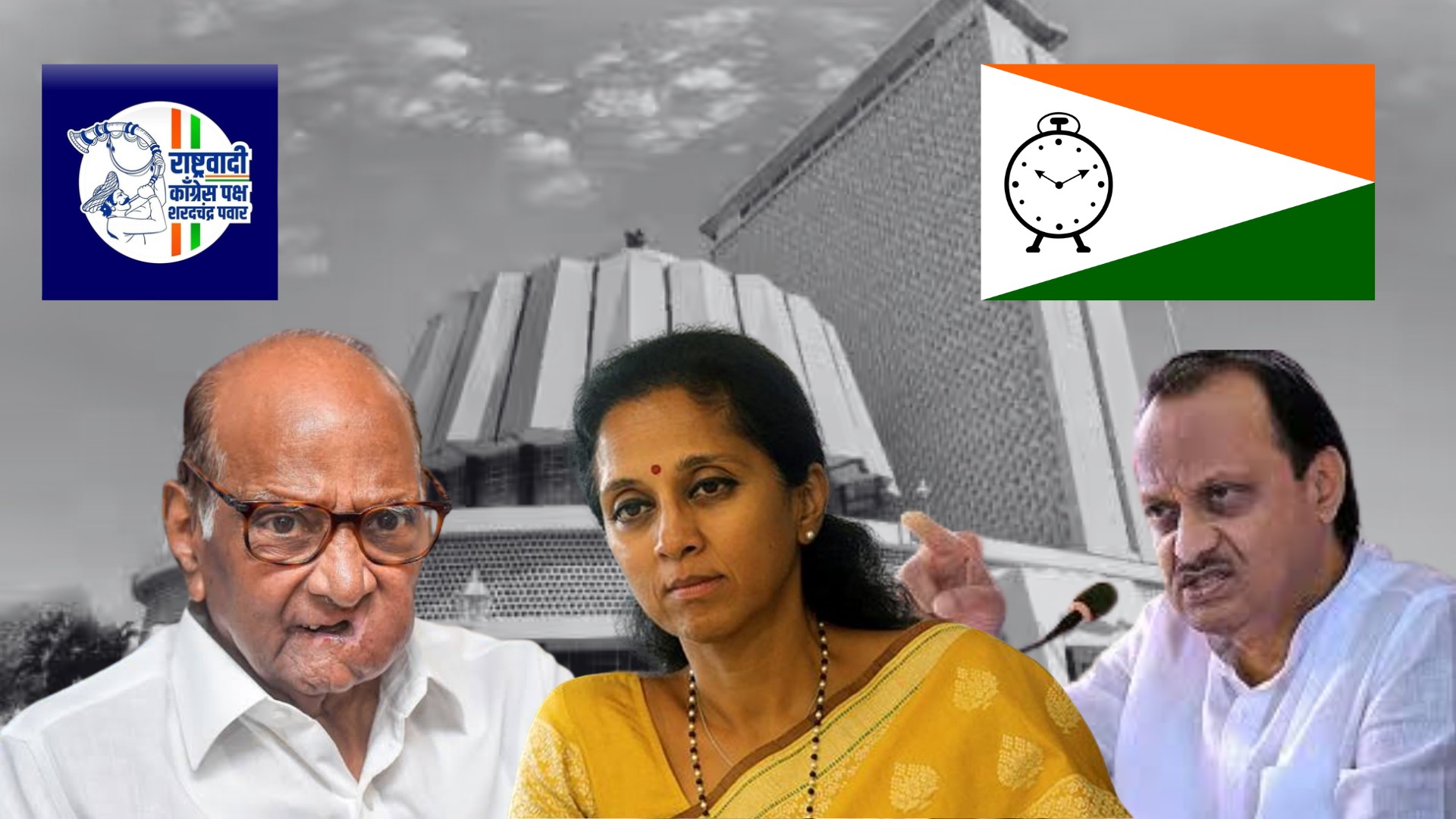
A few questions first. If the two rival units of the Nationalist Congress Party, one led by the founder Sharad Pawar and another by nephew Ajit Pawar were to merge, what would be the political scene in Maharashtra? Would Ajit Pawar leave the government where he is a power-sharer and a deputy chief minister? Or because he is in power, would the founder’s segment walk his political path and sink its political anti-BJP ideology?
These are not irrelevant questions because Sharad Pawar has shown his inclination towards a merger though such a thing happening is unsure yet. But talk and conduct do imply that the Sharad Pawar-led may not have any unhappiness in merging his faction with the Ajit Pawar-led grouping. In fact, Sharad Pawar had conceded that if the two merged, he may not object to it. The call, however, was his daughter Supriya Sule’s. She is executive president of the Nationalist Congress Party (SP).
Ajit has 41 legislators
Ajit’s NCP has 41 MLAs in the 14th Assembly but Devendra Fadnavis with 132 MLAs does not need Ajit to remain in Power; BJP has the backing of Shiv Sena led by Eknath Shinde with 57 MLAs and all that a party or an alliance need is 145 MLAs in a House of 288 members. The purpose in helping the splits in NCP and Shiv Sena before the 2024 elections was to reduce his Opposition to pulp: Congress has 16 and NCP (SP) mere ten. On their own the opposition alliance is nowhere. Why would Ajit Pawar want to lead an opposition?
Neither Ajit Pawar nor Supriya Sule has brushed aside the suggestion from the patriarch though the nephew has strategically remained quiet about it so far. Supriya Sule, however, has admitted that she has not had time to discuss the likely proposal with her father. She would now sit down with him and the party president of NCP (SP), Jayant Patil, and consider the matter. It is known that a section of the party, especially at the level of MLAs, has asked for a merger.
Waiting for uncle
But some gestures do speak. Like Ajit Pawar, yesterday, waiting for his uncle to arrive and offer his tributes to the late Karmaveer Bhausaheb Patil, a social reformist who worked with success to enable the masses to get educated. This happened in Satara from where Patil had worked and the organization, which now runs 34 colleges. Patil had started hostels so rural children could come to towns and study. After Mahatma Phule, Patil is seen as a significant reformer – empowering the disadvantaged.
Sharad Pawar is the chairman of that respect Rayat Shikshan Sanstha – he heads several organisations which are apolitical for a while– which Patil had started in 1919. It is significant that Ajit Pawar waited for his uncle to arrive, not necessarily for protocol reasons. Last year, he had arrived just before the elder Pawar to pay homage to Yashwantrao Chavan whom he considers his inspiration for “constructive politics”. Ajit arrived, paid his tributes and left. Those were the early days after the split.
If it were to happen, it would not be simple as a divided family sinking its differences and getting back to the dining table and enjoying a sumptuous meal. Sharad Pawar is the elder of the larger family and an MP, Ajit his nephew, is a deputy chief minister, and Supriya the daughter. Ajit’s wife, Sunetra Pawar is in Rajya Sabha, Sharad Pawar’s grandnephew, Rohit, is in the Maharashtra Assembly. Another Pawar, Yugendra, had lost an election. Ajit’s son, Parth is waiting in the wings.
Politics is family business
It is as big as the Mulayam Singh Yadav’s Samajwadi Party where almost everyone in the family was in politics, in the Assembly, the Lok Sabha, the Uttar Pradesh Assembly and the patriarch there even the Defence portfolio like Sharad Pawar did. The Pawars are a large family and an equally large political family but what happens in politics would decide the contours of a merger, not just filial matters.
In so far as the filial issues are concerned, it was limited to who would be presiding over the Nationalist Congress Party during the pre-split era. It was a matter of succession in the absence of the patriarch and there was a quiet indication that the daughter would work in the national sphere that is parliamentary politics, and the nephew run the outfit in the State. This was a bone of contention and Ajit was impatient.



